In 1946, Warren Avis opened the world’s first airport car rental location at Willow Run Airport, Detroit, with a grand total of three cars. Today, Avis operates from more than 5,000 locations in 165 countries worldwide.
This spirit of innovation and constantly seeking new opportunities has remained an integral part of the one of the world’s largest car rental and mobility providers ever since.
“We have always been innovators, right from the very beginning. We are always scanning for potential opportunities … looking at ways of trialling new technology and innovation to see how that can fit into our growth strategy,” says Nina Bell, MD Avis Budget and Zipcar, UK and Scandinavia.
This ethos is combined with the pursuit of outstanding customer service and an ever-increasing focus on ‘partnership working’.
In November last year, the Avis Budget Group announced a partnership with on-demand shared transportation service ViaVan. Founded in 2017, ViaVan is a joint venture between Mercedes-Benz Vans and US vehicle-sharing service Via.
Through the ViaVan app, passengers are matched in real-time with other riders who are travelling in the same direction, sharing their trip in a “professionally-chauffeured” van.
ViaVan launched a pilot of its on-demand shared transport service in Milton Keynes. The partnership saw Avis Budget procure the Vito van fleet, maintain it, and provide a weekly mobile wash-and-clean service.
This move into ‘Fleet Management as a Service’ perfectly illustrates the group’s opportunistic and partnership-seeking approach as it evolves its offer in response to the opportunities and challenges presented by a rapidly shifting market.
Partnership working has also helped the group rapidly expand the percentage of connected cars in its fleet, which now stands at nearly 15%.
Bell explains: “We have a partnership with PSA group and with Continental. We are also in the process of fitting Continental devices into other makes and models of cars in the UK.
“This enables two-way data communication between the vehicle, our system and our mobile app, so it enables the customer to use the Avis app to unlock the car and start the engine; which is what we do in Zipcar today and we’re looking at ways of using this technology to transfer this across to the broader Avis fleet. Continental is one of the ways we’re doing that, through its aftermarket device.
“The reason we have been focused on the connected car piece for so long is because it opens up not just a lot of opportunities through the data (which is generated and captured), but also how you can start to use functionality to improve the customer journey.”
‘Most flexible’ car-sharing service
Zipcar is the UK’s largest and, it claims, most flexible, car-sharing service. It was acquired by Avis Budget in 2013 and now has 280,000 members in the UK and one million globally.
In the UK, the service is available in Bristol, Cambridge, London and Oxford. The standard offer is for ‘roundtrip’ rentals; however, ‘Zipcar Flex’ is available in 11 London boroughs for one-way trips, with cars being dropped off in designated parking zones.
The Zipcar Flex fleet consists of around 325 VW e-Golfs, which form part of the 3,000-strong London Zipcar fleet. The introduction of the electric Golfs has proved extremely popular with customers.
“We’ve had more than 16,000 Zipcar members take in excess of 125,000 trips in those EVs covering over 650,000 miles since we launched last summer, so that’s given us a lot of growth experience of operating an EV fleet. It’s also driving an increase in our overall Zipcar membership,” explains Bell.
Prior into its foray into car-sharing, Avis Budget launched into the commercial vehicle (CV) sector in 2015 and in 2017 it acquired local Scottish CV operator ACL. Since, Avis has trebled the size of its fleet, so, “we have grown significantly within the CV space within the past couple of years, through a combination of acquisition and launching in our corporate stores”, says Bell.
Globally, Avis Budget’s customer split is around 40% business-to-business (B2B) and 60% leisure. Although unable to go into specifics, Bell explains: “(This) is not going to change too much when you look at the UK market . We do lean a little bit more towards airport and leisure than we do B2B, but we do play across all sectors within B2B.”
This breadth of reach is aided by ACL, which also gives the group a strong presence within Scotland’s public sector.
Regardless of the area of business being served, Avis’s strong focus on customer satisfaction remains unchanged. Bell says: “A key strength for us is a big focus on customer satisfaction which we measure through Net Promotor Score (NPS).
“We’ve been increasing that a lot this year, and we’re up nine percentage points in June. We track that score down to individual rental sales agent-level – it drills down that far – and we follow up with any client who’s not happy with the service, so we have a very, very strong customer service ethos that we drive through all levels of the organisation, right through to the frontline. We’re very proud of those improving customer service scores; which benefits all of our customers including those in the B2B space.”
Leading role with BVRLA
In addition to being MD Avis Budget and Zipcar, UK and Scandinavia, the other substantial hat donned by Bell is that of (the first female) chair of the British Vehicle Rental and Leasing Association (BVRLA) Committee of Management.
Appointed in May 2019, Bell has sat on the committee since 2015 and was vice-chair for a year prior to stepping up to chair.
Other significant changes on the BVRLA board include Alphabet’s chief executive officer Nick Brownrigg stepping up to become the new vice-chair of the association.
In addition, Neal Francis, managing director of Pendragon Vehicle Management, joined the board having recently been appointed chairman of its Leasing and Fleet Management Committee.
“Nick’s appointment as vice-chair and Neal joining the Committee of Management are a conscious decision by the BVRLA to ensure that the make-up of the committee is as diverse as it can be and is representing the full breadth of the industry,” says Bell.
Her appointment comes at a time when the industry is facing change at an unprecedented pace. Bell says the challenges include, but are not limited to, air quality measures, taxation implications, changes in fuel trains, the adoption of electric vehicles and new vehicle technology.
She is quick to point out that these challenges are also “all opportunities”.
“The industry is really resilient,” she says. “We’re used to facing some of these challenges – albeit I think we are facing unprecedented levels of change. I think one of the things the industry is very good at is evolving its business model to take advantage of some of those changes.”
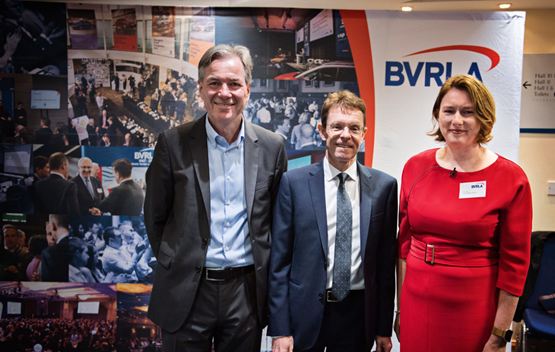
Connecting with Ford
Avis Budget Group has recent announced an agreement with Ford Commercial Solutions to connect approximately 14,000 Ford vehicles in Avis Budget Group’s European fleet.
Ford Commercial Solutions is providing an embedded telematics solution that offers a simplified and efficient way for Avis Budget Group to connect vehicles, reducing typical cost and complexity of implementing aftermarket solutions.
More than 4,000 Ford vehicles in the Avis Budget Group fleet are expected to be connected by the end of this year, and a further 10,000 vehicles by the end of 2020.


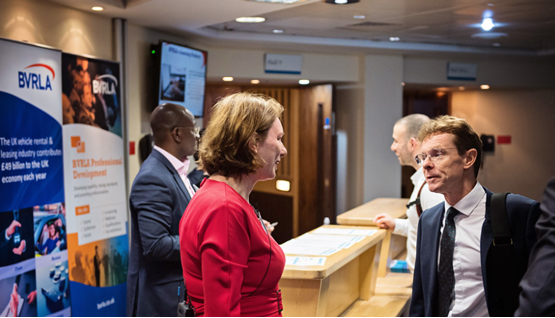




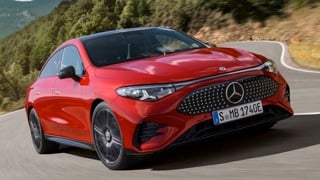
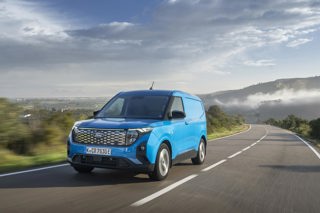
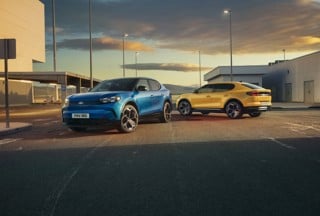












Login to comment
Comments
No comments have been made yet.